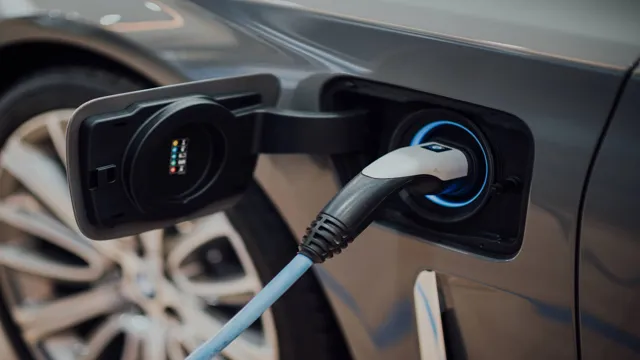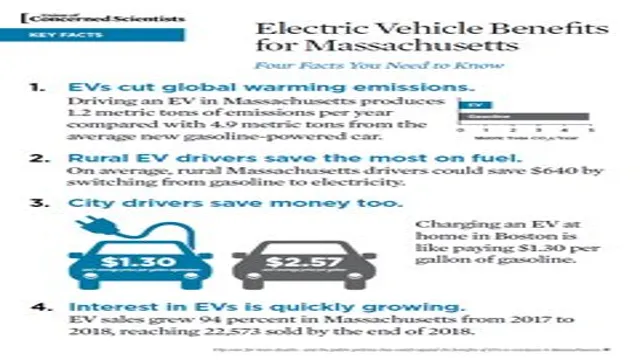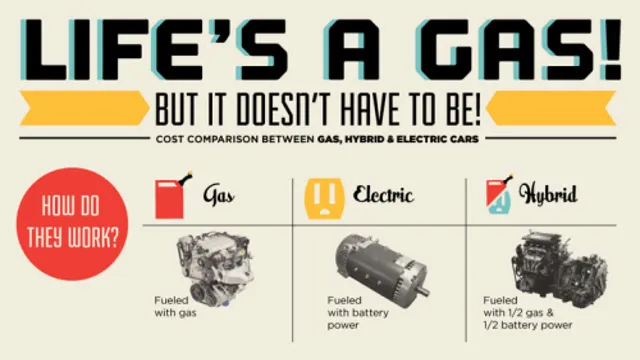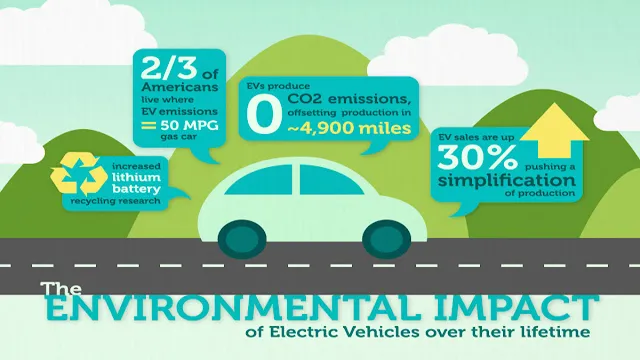Exploring the Pros and Cons of Electric Cars: A Comprehensive Guide
Electric cars have been growing in popularity in recent years due to their eco-friendliness and fuel efficiency. However, as with any technology, there are both pros and cons to owning an electric car. On one hand, electric cars emit no emissions and are cheaper to fuel and maintain compared to traditional gas-powered cars.
On the other hand, the upfront cost of an electric car can be higher, and the range of these vehicles can be limited. In this blog post, we will explore the benefits and drawbacks of electric cars to help you decide whether making the switch is right for you. So, fasten your seatbelt and let’s take a ride into the pros and cons of electric cars.
Benefits of Electric Cars
Electric cars are becoming an increasingly popular choice for drivers all around the world, and for several good reasons. One of the biggest benefits of electric cars is the fact that they are environmentally friendly, emitting zero emissions while in use. They are also much cheaper to run than traditional vehicles, as the cost of electricity is lower than gasoline.
Electric cars are also incredibly quiet, providing a much more peaceful drive than noisy combustion engine cars. Additionally, electric vehicles require less maintenance than traditional cars, which means lower long-term costs. However, there are also downsides to consider when it comes to electric cars.
The initial cost of purchasing an electric car can be more expensive than buying a traditional vehicle, and charging times can often take significantly longer than filling up at a gas station. Despite these downsides, the benefits of electric cars make them an increasingly popular and practical alternative to traditional cars for those looking to reduce their carbon footprint and save on fuel costs.
Zero Emissions
Zero Emissions Electric cars are becoming more and more prevalent as people begin to recognize the benefits they provide. One of the biggest benefits of electric cars is their zero emissions. Unlike traditional gasoline-powered cars, electric cars produce no harmful pollutants that contribute to air pollution.
This means that electric cars help to decrease the overall carbon footprint of an individual or organization. Not only are electric cars good for the environment, but they can also save drivers money on gas expenses since they don’t require gasoline to run. Electric cars are also much quieter and smoother to drive compared to their gasoline counterparts.
While the upfront cost of buying an electric car may be higher than a traditional car, the long-term benefits make it a worthwhile investment. Overall, owning an electric car is a smart choice for anyone looking to reduce their carbon footprint and save on gas expenses.

Cost Savings (Fuel and Maintenance)
One of the biggest benefits of electric cars is cost savings. With rising fuel prices, the savings in fuel alone can be significant, and over time, this can add up in a big way. On top of that, electric cars usually require less maintenance than traditional gasoline vehicles, which can save you even more money in the long run.
When it comes to fuel efficiency, electric cars are much better than gas vehicles, and this translates to major savings. And since electric cars have fewer moving parts than gas vehicles, they’re not subjected to the same wear and tear, which means less maintenance and repair costs over time. All in all, making the switch to an electric car can save you a considerable amount of money in both fuel and maintenance costs, making it a smart investment for the long haul.
Quieter Driving Experience
One of the major benefits of driving an electric car is the quieter driving experience it provides. Traditional gasoline engine cars are known to produce a lot of noise due to the internal combustion process. Electric cars, on the other hand, have a much quieter motor as they rely on battery power to run.
This quieter experience comes with numerous advantages such as reducing noise pollution and creating a more peaceful environment for drivers and passengers. Additionally, it can also increase awareness on the road as drivers are better able to hear other sounds such as horns or sirens. This makes electric cars a perfect choice for individuals who live in urban areas and prefer a more peaceful driving experience.
So, if you want to enjoy a quieter and more relaxed driving experience, consider getting an electric car.
Drawbacks of Electric Cars
While electric cars have numerous benefits, such as being environmentally friendly and cheaper to maintain, there are also some downsides to consider. For starters, their driving range is limited, and a single charge may not take you as far as a tank of gasoline would. This can make long distance travel more complicated and lead to range anxiety for drivers.
Another factor to consider is the higher initial cost of purchasing an electric car. While they may save money in the long run due to lower fuel and maintenance costs, the upfront investment may be a deterrent for some buyers. There are also concerns about the availability of charging stations, as not all areas have the infrastructure in place to support widespread adoption of electric vehicles.
It is important to weigh the benefits and downsides of electric cars before making a decision.
Limited Range and Charging Infrastructure
Electric cars have become an increasingly popular option for environmentally conscious drivers in recent years. However, one of the major drawbacks of electric vehicles is their limited range. The distance that electric cars can travel on a single charge is generally lower than that of traditional gas-powered vehicles.
This means that electric car owners need to plan their journeys carefully, particularly if they are traveling long distances. Additionally, the lack of widespread charging infrastructure can make it difficult for drivers to find a place to charge their vehicle when they need to do so. Despite the growing number of charging stations, many areas still lack adequate infrastructure, making it challenging for drivers to rely on electric cars as their primary mode of transportation.
Despite these drawbacks, advancements in technology and infrastructure improvements are expanding the range and accessibility of electric cars, making them a viable option for more drivers.
High Upfront Cost
One of the drawbacks of electric cars is the high upfront cost. While electric cars may save you money in the long run due to lower fuel and maintenance costs, the initial price tag can be steep. This may deter some consumers from making the switch.
However, it’s important to consider the bigger picture. Many governments offer incentives and tax credits for purchasing electric vehicles, which can help offset the cost. Additionally, as more people begin to buy electric cars, economies of scale should drive down the price.
In the end, investing in an electric car may require more money upfront, but it can lead to cost savings and a cleaner environment in the long run. So, it’s worth considering the big picture when weighing the costs and benefits of electric cars.
Longer Refueling Time
One of the major drawbacks of electric cars is their longer refueling time compared to traditional gasoline-powered vehicles. Charging an electric car can take anywhere from 30 minutes to several hours, depending on the charging station and the car’s battery capacity. This can be inconvenient for drivers who are used to quickly refueling their cars at gas stations and hitting the road.
Moreover, the availability of charging stations can still be limited in some areas, which can make it challenging for electric car owners to plan their trips and avoid running out of power. However, the advancement in technology has made it easier for electric cars to charge faster than their predecessors. Tesla, for example, has developed Superchargers that can provide up to 300 miles of range in just 15 minutes of charging.
Despite these improvements, longer refueling time remains a hurdle that automakers must overcome to convince more consumers to switch to electric cars.
Conclusion: Are Electric Cars Worth It?
In conclusion, electric cars have both benefits and downsides. The benefits include cleaner energy, lower fuel costs, and a reduction in greenhouse gas emissions. However, the downsides include the need for frequent charging, limited range, and higher upfront costs.
Despite these drawbacks, the rise of electric cars is undeniable. Ultimately, the benefits of electric cars far outweigh the negatives, and as technology continues to improve, they will become even more attractive. So, until we can all drive flying cars, electric vehicles are undoubtedly the way forward for sustainability on the road.
“
FAQs
What are the benefits of owning an electric car?
Electric cars have lower operating costs, emit fewer greenhouse gases, and require less maintenance than traditional gasoline cars.
Are there any downsides to owning an electric car?
Some downsides of owning an electric car include the higher upfront costs, limited range on a single charge, and potential inconvenience of finding charging stations.
How long does it take to charge an electric car?
The time it takes to charge an electric car depends on the size of the battery and the charging speed. On average, it takes about 8 hours to fully charge a car with a 60 kWh battery using a Level 2 charger.
Are there any incentives for buying an electric car?
Yes, many states offer rebates or tax credits for purchasing an electric car. Additionally, some utilities offer discounts on electricity rates for electric car owners.





